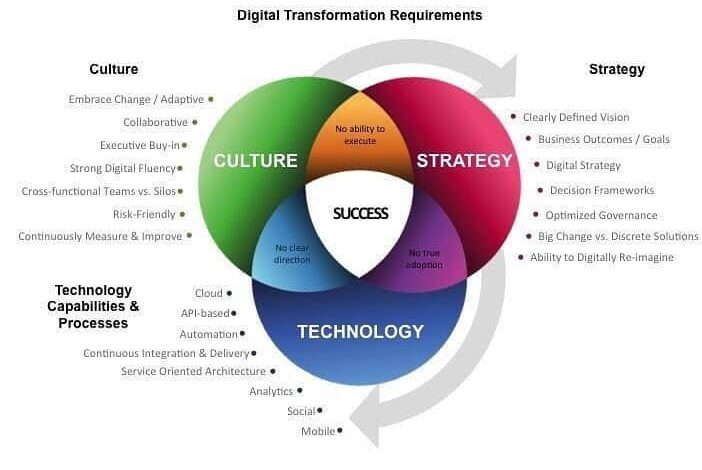Tech Culture & Industry Insights

Navigating the Ever-Shifting Landscape of Tech Culture
The world of technology moves at a breakneck pace. It’s not just about new gadgets and software; it’s also about the culture that surrounds these innovations – how we work, collaborate, and even *think* within this constantly evolving ecosystem. Understanding tech culture isn’t merely a nice-to-have skill; it’s becoming increasingly vital for success, whether you’re a seasoned engineer, a budding entrepreneur, or simply someone trying to make sense of the digital world.
What Exactly *Is* Tech Culture?
When we talk about tech culture, we’re referring to a broad set of values, norms, and behaviors that characterize the technology industry. It encompasses everything from coding practices and agile methodologies to workplace dynamics and approaches to innovation. Unlike some established industries with deeply ingrained hierarchies and traditions, tech culture has historically been characterized by a spirit of experimentation, disruption, and a focus on meritocracy.
Key aspects of tech culture often include:
* Emphasis on Innovation: A relentless pursuit of new ideas and solutions. Failure is often seen as a learning opportunity rather than a setback.
* Agile Methodologies: Iterative development, frequent feedback loops, and adaptability are prioritized over rigid plans.
* Open Source Collaboration: Sharing code and knowledge openly to accelerate progress.
* Flat Hierarchies (Ideally): A move away from traditional top-down management structures towards more collaborative team environments. Though reality can vary significantly!
* Data-Driven Decision Making: Relying on data and analytics to inform choices rather than solely on intuition.
The Evolution of Tech Culture – From Garage Startups to Corporate Giants
Tech culture hasn’t always looked the way it does today. In its early days, particularly during the rise of Silicon Valley startups in the 1980s and 90s, the focus was heavily on individual genius, long hours fueled by pizza and caffeine, and a “move fast and break things” mentality. This era fostered incredible innovation but also had significant drawbacks – burnout, lack of diversity, and sometimes questionable ethical considerations.
As technology companies grew into global giants, tech culture began to evolve (and in some cases, calcify). While the emphasis on innovation remains, larger organizations often grapple with balancing rapid development with stability, regulatory compliance, and the need for greater accountability. The “move fast and break things” ethos is now tempered by risk mitigation strategies and a growing awareness of potential consequences.

Current Trends Shaping Tech Culture
Several trends are currently reshaping tech culture. Let’s explore some of the most significant:
1. Diversity, Equity & Inclusion (DE&I)
For years, the technology industry has faced criticism for its lack of diversity and inclusion. There’s been a growing recognition that this isn’t just a social responsibility issue but also a business imperative – diverse teams are more innovative and better equipped to understand and serve a global customer base. Many companies are now actively investing in DE&I initiatives, including mentorship programs, unconscious bias training, and efforts to recruit from underrepresented backgrounds.
2. Remote Work & Hybrid Models
The COVID-19 pandemic accelerated the shift towards remote work and hybrid models. While there’s been a debate about the optimal balance between in-office collaboration and remote flexibility, it’s clear that employees increasingly value the ability to work from anywhere. Companies are now experimenting with different approaches to create environments that support both individual productivity and team cohesion.
3. Mental Health & Wellbeing
The demanding nature of tech roles, coupled with long hours and intense pressure, has led to a growing focus on mental health and wellbeing. Companies are starting to offer resources like mindfulness programs, access to therapists, and flexible work schedules to support employee mental health.
4. Ethical AI & Responsible Technology
As artificial intelligence becomes increasingly integrated into our lives, there’s a heightened awareness of the ethical implications – bias in algorithms, privacy concerns, and the potential for misuse. Tech companies are now grappling with how to develop and deploy AI responsibly, considering its impact on society.
5. The Rise of No-Code/Low-Code Development
No-code and low-code platforms are empowering citizen developers – individuals without extensive coding experience – to build applications and automate tasks. This trend is democratizing technology and potentially shifting the role of traditional software engineers towards more complex problem-solving.
Challenges & Criticisms of Tech Culture
Despite its many strengths, tech culture isn’t without its flaws. Here are some common criticisms:
- Burnout: The pressure to innovate and constantly be “on” can lead to burnout among employees.
- Lack of Diversity (Still): Despite progress, diversity remains a challenge in many organizations.
- Bro Culture: A persistent “bro culture” can create an unwelcoming environment for women and other underrepresented groups.
- Ethical Concerns: The rapid pace of innovation sometimes outpaces ethical considerations.
- Exclusivity: Certain aspects of tech culture, like the emphasis on specific educational backgrounds or coding skills, can exclude talented individuals.
Navigating Tech Culture Effectively
Whether you’re a seasoned professional or just starting your journey in technology, understanding and navigating tech culture effectively is crucial.
- Be Adaptable: The landscape is always changing, so be prepared to learn new skills and adapt to new ways of working.
- Embrace Collaboration: Tech thrives on collaboration. Be open to feedback and willing to share your knowledge.
- Prioritize Wellbeing: Don’t sacrifice your mental health for the sake of productivity.
- Champion DE&I: Advocate for a more inclusive and equitable workplace.
- Stay Curious: Keep learning about new technologies and trends.
The Future of Tech Culture
Looking ahead, tech culture is likely to continue evolving. We can expect to see greater emphasis on sustainability, ethical AI development, and a more human-centered approach to technology. Companies that prioritize employee wellbeing, foster inclusivity, and embrace responsible innovation will be best positioned for long-term success in this ever-changing landscape.
Ultimately, the future of tech culture hinges on our ability to harness the power of technology while mitigating its risks and ensuring that it benefits all of humanity. It’s a challenge worth embracing – one that requires ongoing reflection, adaptation, and a commitment to building a better digital world for everyone.



